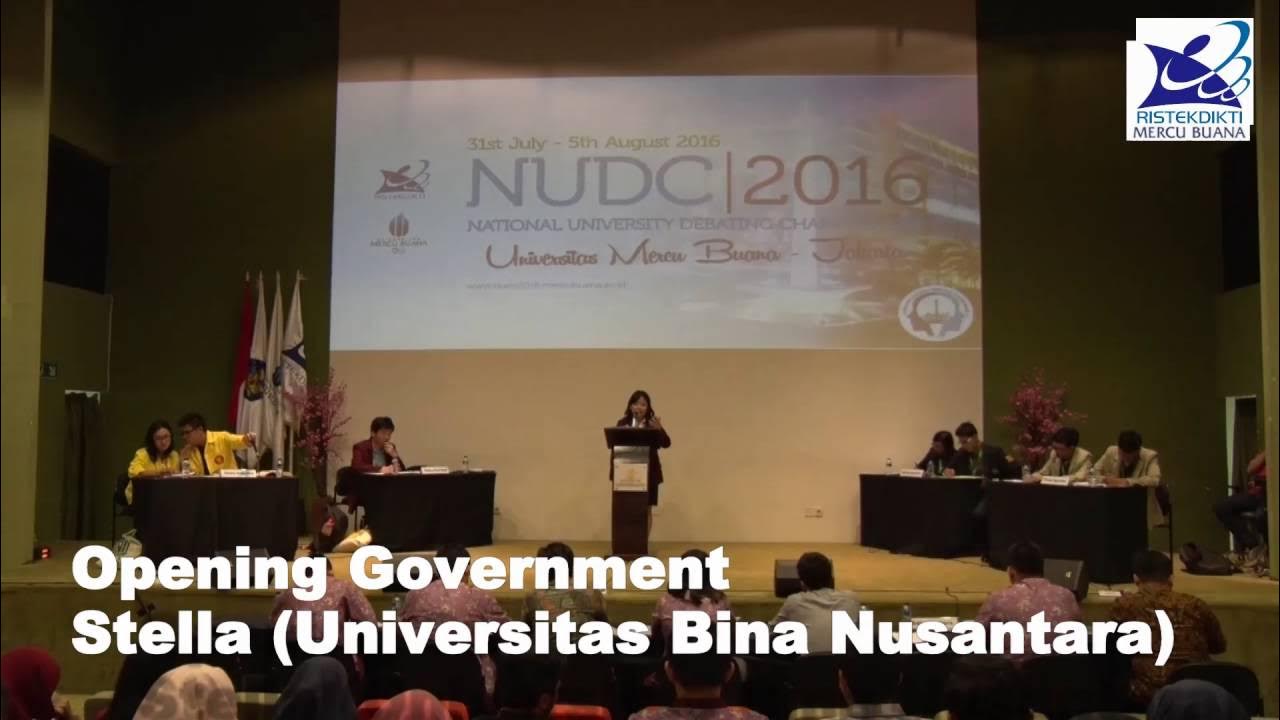[1] Pidato Lahirnya Pancasila 1 Juni 1945
Summary
TLDRThe transcript captures a passionate speech advocating for Indonesian independence, highlighting the desire to break free from colonial rule. It emphasizes the urgency of self-governance and unity in building a strong, sovereign nation. The speaker touches on various political ideologies, including nationalism, internationalism, and the importance of collective decision-making through democracy. The call for a unified, equitable society is reinforced, with references to historical struggles and the aspiration to establish a nation rooted in mutual respect, collaboration, and independence. The speech conveys fervor for freedom and national pride.
Takeaways
- 🌍 The speech emphasizes Indonesia's struggle against imperialism and the desire for independence.
- 🛡️ The speaker calls for preparation and readiness to defend the country, even with limited resources like bamboo spears.
- 🗣️ Political independence is seen as a 'golden bridge' to achieving a stronger, more prosperous society.
- 🎯 The speaker stresses that true independence should not only be political but should also improve the lives of all citizens.
- 🕌 Indonesia's nationalism is highlighted as inclusive, emphasizing unity across all islands from Sumatra to Irian.
- 🏛️ A national foundation based on deliberation, consensus, and representation is proposed for a strong and unified Indonesia.
- 🤝 There is a focus on internationalism, stating that Indonesia should contribute to world peace and fraternity among nations.
- 💪 Nationalism is celebrated, but there is a warning against chauvinism and excessive nationalism that could lead to division.
- 📜 The speaker references historical periods of unity under the Sriwijaya and Majapahit empires as models for Indonesia’s future.
- 🌱 The philosophy behind the future Indonesian state is grounded in the desire for equality, welfare, and national unity for all citizens.
Q & A
What is the main theme of the speech presented in the script?
-The main theme of the speech is Indonesia's struggle for independence, with an emphasis on national unity, the fight against imperialism, and the vision of establishing a free, sovereign Indonesian state.
How does the speaker describe Indonesia's future in the event of a Pacific War?
-The speaker predicts that if a Pacific War breaks out, it will be fierce, with bloodshed and destruction. During this time, the Indonesian people will seize the opportunity to break free from colonial oppression and declare their independence.
What does the speaker mean by 'philosophy grondslag'?
-'Philosophy grondslag' refers to the fundamental philosophical foundation or underlying ideology upon which the nation of Indonesia will be built. It symbolizes the deep-rooted aspirations and values that will sustain Indonesia's independence.
What is the significance of 'political independence' in the context of the speech?
-Political independence, or 'politieke onafhankelijkheid,' is described as a 'golden bridge' that will lead to the eventual perfection of Indonesian society. It is seen as the first step toward building a strong, unified, and self-sustaining nation.
How does the speaker address the differences in independence among various nations?
-The speaker acknowledges that while many nations claim independence (e.g., Germany, Saudi Arabia, China, the U.S.), the quality and content of that independence vary significantly. The speaker stresses that true independence must be more than just a name and must serve the welfare of all citizens, not just a privileged few.
What is the speaker's stance on national unity and nationalism?
-The speaker emphasizes the importance of nationalism, but not in a narrow, exclusionary sense. They advocate for a 'national start'—a broad, inclusive form of nationalism that unites all Indonesians, regardless of class or background, in the goal of building a free and just society.
What is the speaker's warning regarding nationalism?
-The speaker warns that nationalism can devolve into chauvinism or extreme nationalism, which can become dangerous if it isolates Indonesia from the rest of the world. They argue that nationalism must be balanced with internationalism to promote global peace and cooperation.
What does the speaker propose as the second principle for Indonesia's foundation?
-The second principle proposed is internationalism, which must coexist with nationalism. The speaker argues that a strong national identity is essential, but it must also be linked to global cooperation and brotherhood to ensure peace and prosperity.
What role does 'mufakat' or consensus play in the speaker's vision of an independent Indonesia?
-The speaker advocates for 'mufakat' or consensus-based decision-making as a key principle of governance in an independent Indonesia. They believe that true democracy and representation require consultation and agreement among the people, ensuring that all voices are heard.
How does the speaker envision the role of youth in the future of Indonesia?
-The speaker sees the youth of Indonesia as crucial to the nation’s future. They mention that two million young people are calling for independence and are ready to fight for it, emphasizing the importance of preparing and training the next generation to lead and defend the country.
Outlines

このセクションは有料ユーザー限定です。 アクセスするには、アップグレードをお願いします。
今すぐアップグレードMindmap

このセクションは有料ユーザー限定です。 アクセスするには、アップグレードをお願いします。
今すぐアップグレードKeywords

このセクションは有料ユーザー限定です。 アクセスするには、アップグレードをお願いします。
今すぐアップグレードHighlights

このセクションは有料ユーザー限定です。 アクセスするには、アップグレードをお願いします。
今すぐアップグレードTranscripts

このセクションは有料ユーザー限定です。 アクセスするには、アップグレードをお願いします。
今すぐアップグレード関連動画をさらに表示

NUDC Final Round Part 1

Masa Kependudukan Jepang | Indonesia dalam Peristiwa (2/10/2019)

Pidato 1 Juni Full Versi

Sumpah Pemuda - Drama Peringatan Hari Sumpah Pemuda (SMK Negeri 8 Pinrang)

Sejarah, Pidato Ir. Soekarno 1 Juni 1945

𝐒𝐄𝐉𝐀𝐑𝐀𝐇 𝐗𝐈 𝟕 𝐒𝐌𝐀𝐍 𝟏 𝐒𝐔𝐑𝐀𝐊𝐀𝐑𝐓𝐀- 𝐊𝐄𝐋𝐎𝐌𝐏𝐎𝐊 𝟐 "Rengasdengklok & Sidang PPKI: Menuju Indonesia merdeka"
5.0 / 5 (0 votes)
